Website: www.cra-arc.gc.ca/tx/ndvdls/sgmnts/dsblts/menu-eng.html
Telephone: (800) 959-8281
Line 330 – Medical expenses for self, spouse or common-law partner, and your dependent children born in 1997 or later
You can claim on line 330 the total eligible medical expenses you or your spouse or common-law partner paid for:
- yourself;
- your spouse or common-law partner; and
- your or your spouse’s or common-law partner’s children born in 1997 or later.
Medical expenses for other dependents must be claimed on line 331.
More details are available at website.
Line 215 – Disability supports deduction
Individuals who have an impairment in physical or mental functions and have paid for certain medical expenses can claim the disability supports deduction under certain conditions.
If you have an impairment in physical or mental functions, you can claim a disability supports deduction if you paid expenses that no one has claimed as medical expenses, and you paid them so that you could:
- be employed or carry on a business (either alone or as an active partner);
- do research or similar work for which you received a grant; or
- attend a designated educational institution or a secondary school swhere you were enrolled in an educational program.
Information and forms are available at website.
Travel Expenses
If you had to travel at least 40 kilometres (one way) from your home to obtain medical services, you may be able to claim the public transportation expenses you paid (for example, taxis, bus, or train) as medical expenses. Where public transportation is not readily available, you may be able to claim vehicle expenses.
If you had to travel at least 80 kilometres (one way) from your home to obtain medical services, you may be able to claim accommodation, meal, and parking expenses in addition to your transportation expenses as medical expenses.
To claim transportation and travel expenses, the following conditions must be met:
- substantially equivalent medical services were not available near your home;
- you took a reasonably direct travelling route; and
- it is reasonable, under the circumstances, for you to have travelled to that place for those medical services.
If a medical practitioner certifies in writing that you were incapable of travelling alone to obtain medical services, you can also claim the transportation and travel expenses of an attendant who accompanied you.
To determine if the treatment you received outside of Canada is an eligible medical expense, see Medical services provided outside of Canada.
If you have travel expenses related to medical treatment and you also qualify for the northern residents deduction (line 255 of your income tax and benefit return), you may be able to choose how to claim your expenses. For more information, see Form T2222, Northern Residents Deduction.
For all expenses, you can only claim the part of the expense that you have not been and will not be reimbursed for. However, you can claim all of the expense if the reimbursement is included in your income (such as a benefit shown on a slip T4, Statement of Remuneration Paid) and you did not deduct the reimbursement anywhere else on your income tax and benefit return.
Meal and vehicle expenses
You can choose to use the detailed method or the simplified method for calculating meal and vehicle expenses. If you use the detailed method, you have to keep all receipts and records for your 12-month period.
For more information and to find out about the rates used to calculate these travel expenses, see Meal and vehicle rates used to calculate travel expenses for 2014.
Accommodations
You must keep receipts for all accommodation expenses and you must be able to show that the amount paid for accommodation is necessary because of the distance travelled and your medical condition. Claim the amount for accommodation as shown on your receipts.
Medical services provided outside of Canada
If you travel outside Canada to get medical services, you can claim the amounts you paid to a medical practitioner and a public or licensed private hospital. A “medical practitioner” is an individual (such as a doctor or a nurse) who is authorized to practice according to the laws of the jurisdiction that the services are provided in. A “licensed private hospital” is a hospital licensed by the jurisdiction that it operates in.
Specially Equipped Motor Vehicles
Website: www.cra-arc.gc.ca/tx/bsnss/tpcs/gst-tps/rbts/vhcls/menu-eng.html
You can claim a specially-equipped motor vehicle rebate if you paid GST/HST on the purchase of a qualifying motor vehicle*, or you paid GST/HST on a modification service performed on your motor vehicle. To apply for the rebate, complete Form GST518, GST/HST Specially Equipped Motor Vehicle Rebate Application.
* A qualifying motor vehicle means a motor vehicle that is equipped with a device designed exclusively to assist in placing a wheelchair in the vehicle without having to collapse the wheelchair, or with an auxiliary driving control to facilitate the operation of the vehicle by an individual with a disability.
Qualifying motor vehicles do not include ambulances, but do include vehicles such as para-transit buses and vans that are specially equipped.
